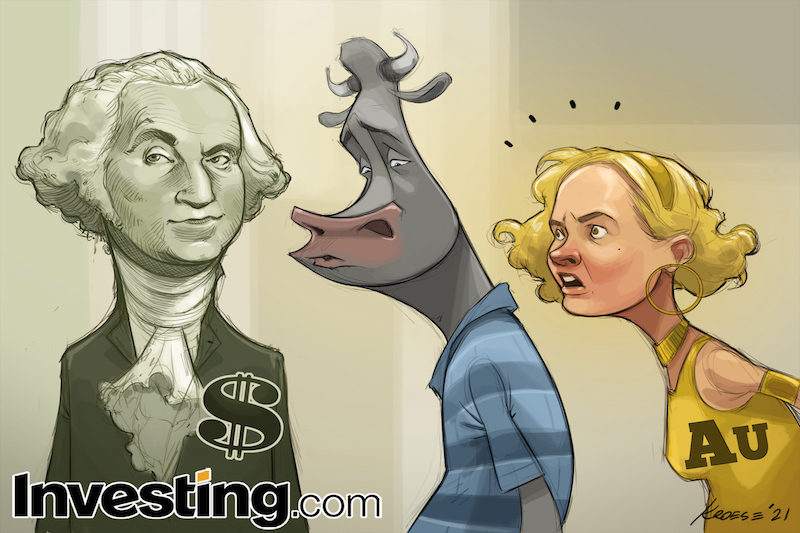Asia FX muted despite Fed cut bets; Japanese yen slides after PM Ishiba resigns
By Geoffrey Smith
Investing.com -- Only three months ago, the dollar didn’t have a friend in the world. Now it’s turning heads wherever it goes.
Consensus opinion has done what it so often does – and turned on a dime. The notion that a combination of loose fiscal and monetary policy in the U.S. must inevitably debase the world’s reserve currency looked solid on paper but overlooked other important implications that are only now becoming clear.
The first is the galvanizing effect they would have on growth, especially when underpinned by the progress of a vaccination campaign that – it seems – will ensure that Americans never have to be as scared of Covid-19 again. Merck’s recent agreement to let Johnson & Johnson (NYSE:JNJ) brew its one-shot vaccine at its extensive manufacturing facilities means that all U.S. adults who want should be inoculated by the end of May. That also moves up the day when the U.S. can be a net exporter of such vaccines.
Wall Street already started revising up its growth forecasts the minute that President Joe Biden’s administration drafted its $1.9 trillion package. This Tuesday, when the package was due for its final vote in Congress before going off for signing, the Organization for Economic Cooperation and Development said the plan would add 3.3 percentage points to U.S. growth and 1 percent to global growth this year.
The OECD now sees U.S. growth at 6.5% this year, and is still at the conservative end of a forecast range that implies a sharp improvement on returns on dollar assets across the board.
That starts with the U.S. Treasury, whose unprecedented demand for dollars to fund a substantial expansion of the U.S.’s welfare state means that it simply has to pay a higher price for those dollars.
And, just as the Treasury’s demand reaches record highs – an estimated $274 billion in the first quarter alone – the big U.S. primary dealers who habitually warehouse much of the new Treasury issuance are more reluctant than usual to add to their holdings.
That’s because the Federal Reserve has so far refused to say whether it will extend a vital loophole in their capital requirements that it created to ease last year’s panic. Under the Supplementary Leverage Ratio, a product of the post-2008 regulatory reforms, banks have to hold 3.5 cents of capital for every dollar of assets they hold, irrespective of the risk. The SLR was suspended last year to help the financial system cope with the stress of the pandemic’s first wave. It’s due to be reinstated at the end of March (unless the Fed decides otherwise at its Federal Open Markets Committee meeting next week).
If it isn’t, the Treasury will have to offer even higher rates on its IOUs. The $2.3 trillion deficit projected this year by the Congressional Budget Office is nearly double what the Fed is currently committing to buy through its quantitative easing program.
The loser in all of this haven assets in general, and gold in particular. The dollar has risen over 5% so far this year against both the yen and Swiss franc, whose negative nominal returns have been made to look even worse as 10-year Treasury yields have shot above 1.5%. The euro hardly looks any better positioned as its stuttering vaccination campaign allows the U.S. and U.K. to steal a three-month head start in reopening their economies. Analysts at Nordea see $1.13 as a fairer value than the $1.19 currently traded.
But it is the other traditional haven asset, gold, that is hurting most. Since peaking in August, it has lost 16% against the dollar. In part, that is because Bitcoin has stolen its thunder. But mainly, it is because real (that is, inflation-adjusted) bond yields, which typically drive gold prices, are less steeply negative than they were a year ago.
Having sharply discounted last year the reflation that is now materializing, the yellow metal has nowhere to go but down in the short term. As JPMorgan analysts wrote to clients last week, a basket of commodities, or commodity currencies, or even basic materials stocks, offer a better hedge against inflation.
“It’s simply still expensive in real terms, and it offers no yield,” they summed up. And to make matters worse, it now has Bitcoin to contend with.
